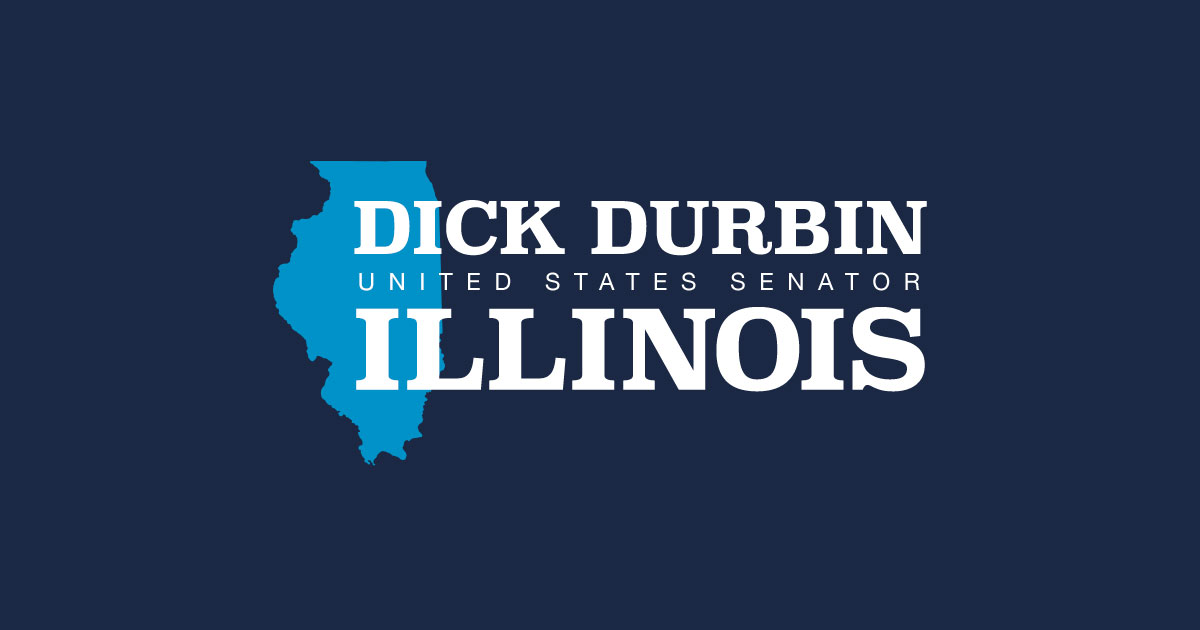Source: United States Senator for Illinois Dick Durbin
WASHINGTON – U.S. Senate Majority Whip Dick Durbin (D-IL) joined U.S. Senators Jeanne Shaheen (D-NH), Lisa Murkowski (R-AK), Susan Collins (R-ME), Tammy Baldwin (D-WI), and Mitt Romney (R-UT) to introduce bipartisan, bicameral legislation to protect children from the dangers of e-cigarettes. The Resources to Prevent Youth Vaping Act would require that e-cigarette manufacturers pay user fees to the Food and Drug Administration (FDA) to provide the agency with additional resources to conduct stronger oversight of the e-cigarette industry and increase awareness of the danger of e-cigarettes.
Companion legislation will be introduced in the House by U.S. Representatives Cheri Bustos (D-IL-17) and Brian Fitzpatrick (R-PA-01).
“Big Vape has hooked nearly four million kids on e-cigarettes, creating a vaping epidemic that is threatening our next generation with a lifetime of nicotine addiction and disease,” said Durbin. “The FDA needs to clear the shelves of these dangerous and addictive products, and Congress needs to pass the Resources to Prevent Youth Vaping Act, which will help provide FDA with the resources to better regulate this market. Enough is enough. The health of our children cannot wait any longer.”
“From our small towns to big cities, vaping among students has soared – we’ve even heard stories of third graders using e-cigarettes in my district,” said Bustos. “When it comes to youth vaping, we must fight for our children’s future and that’s why I’m proud to join this bicameral, bipartisan group of lawmakers to help the FDA enforce the law, educate the public and regulate vaping companies.”
In recent years, the use of e-cigarettes and other electronic nicotine delivery systems (ENDS) products has skyrocketed, particularly among teens. The Centers for Disease Control and Prevention (CDC) recently reported that:
- E-cigarette use among high school students rose from 1.5 percent of students in 2011 to 27.5 percent of students in 2019.
- E-cigarette use among middle school students also grew, from 0.6 percent of students in 2011 to 10.5 percent of students in 2019.
- The availability of flavored e-cigarettes, and easily-concealable vaping products, like JUUL, have made e-cigarettes more popular among youth.
The Resources to Prevent Youth Vaping Act increases the total amount that will be collected in tobacco user fees by $100 million in Fiscal Year (FY) 2022 and indexes that amount to inflation for future years. Critically, the bill also authorizes FDA to collect user fees from all manufacturers of products that have been deemed as tobacco products by FDA, including e-cigarettes. Currently, manufacturers of traditional combustible tobacco products pay into FDA user fees, but e-cigarette companies are exempt due to a loophole in the law. The amount collected from individual e-cigarette manufacturers will be proportional to their share of the overall tobacco market, as determined by FDA. FDA would be able to use this additional revenue from e-cigarette user fees to conduct safety review of vaping products, prevent sales of e-cigarettes to minors, help support efforts to educate youth on the dangers of e-cigarettes and increase the agency’s oversight and enforcement capabilities.
Earlier this year, Durbin introduced the bicameral Tobacco Tax Equity Act to reduce youth tobacco use by closing loopholes in the tax code that have long been exploited by the tobacco industry to avoid regulation and taxes for their products. The bill would also apply tax parity across all tobacco products, including establishing the first federal e-cigarette tax and increased the tobacco tax rate for the first time in a decade.
Full text of the legislation is available here.
-30-
